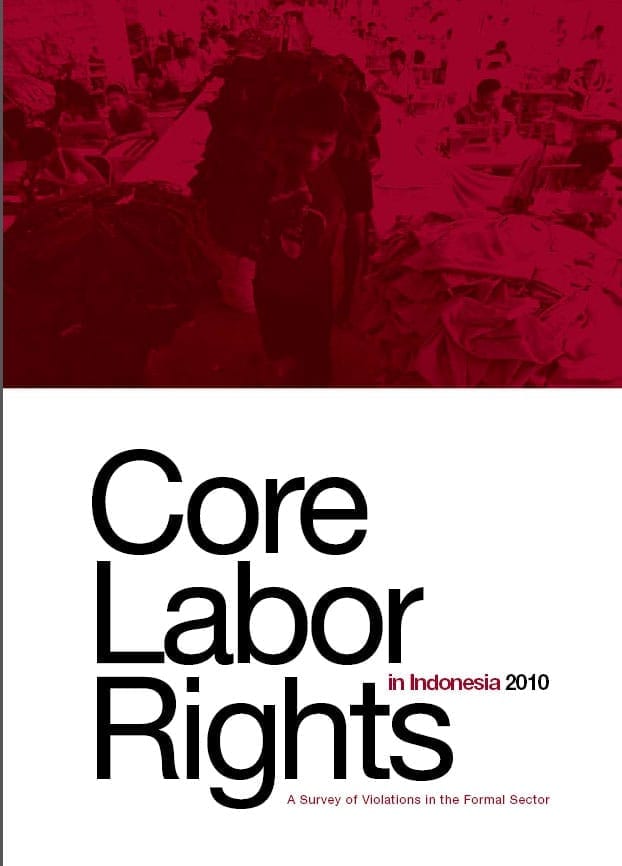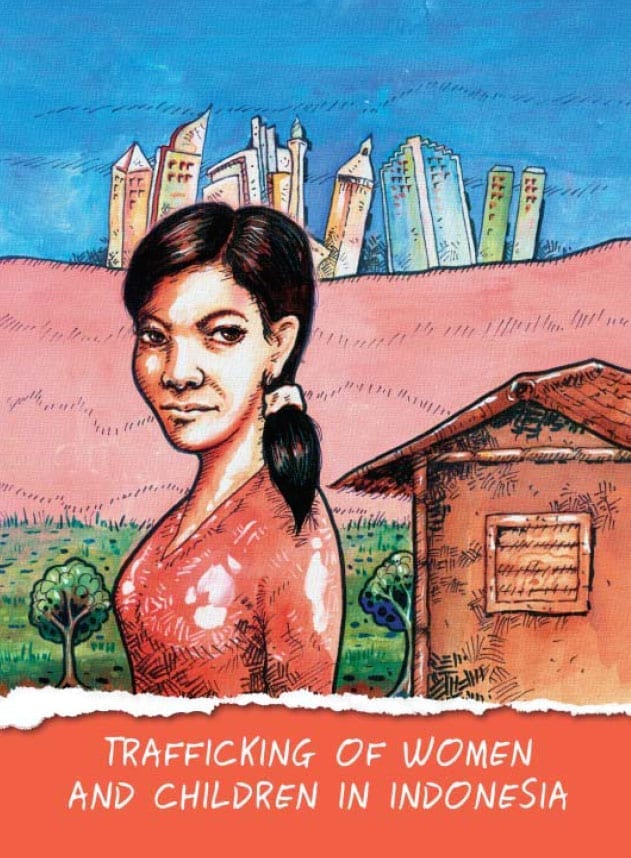Nov 4, 2013
November 4, 2013—Indonesian workers are planning a second round of nationwide protests for better wages, likely beginning November 6, according to the Jakarta Labor Forum.
After 3 million workers last week went on a two-day strike across the country, the government raised the minimum wage by between 10 percent and 11 percent, well short of the amount workers are seeking in an economy where inflation is expected to rise by 9 percent next year. Indonesian workers are calling for higher wages to match those of other Asian countries as foreign direct investment flows into the region’s biggest economy. Workers also want an end to job outsourcing.
In an editorial supporting the workers, the Jakarta Post wrote that “workers live in virtual poverty even while the minimum wage is described as a ‘decent standard of living.’”
The editorial quoted Jumisih, a union leader from North Jakarta’s industrial area, who said: “Renting a small space … with several others, with no ventilation in a squalid area is not decent.”
At least 17 workers were attacked during last week’s rallies, according to the Confederation of Indonesian Worker’s Union (KSPI). The union said the workers were hospitalized after receiving wounds from sharp weapons and four are in critical condition. KSPI is calling for an end to such attacks.
Indrasari Tjandraningsih, a labor researcher at AKATIGA, the Center for Social Analysis, maintains that workers’ demands to ban outsourcing are also supported by data on the widespread exploitative and degrading practices.
In an opinion piece in today’s Jakarta Post, he writes: “When workers demand social security they refer to both the Constitution and the law on social security. All these show that workers’ demands are not irrational but have solid grounding. This state of affairs should be understood in a more positive context: Indonesian workers are getting more aware of their rights and also have more capability to see problems in a comprehensive and objective manner.”
Oct 31, 2013
Hundreds of thousands of Indonesian workers started a two-day national strike today demanding the government institute a fair minimum wage, end rampant employer violations of labor outsourcing and speed up implementation of a universal health care law. Several unions conducted rallies over the three days leading up to the national mobilization to increase public awareness of the effort.
Union workers also are calling for passage of a national law protecting domestic worker rights and repeal of a recently passed law widely criticized for its apparent aim to restrict the freedoms of civil society organizations.
Speaking on behalf of a coalition of unions participating in the action, Indonesian Trade Union Confederation president Said Iqbal said,”We have been compelled to take to the streets since the government and employers have been unwilling to seek solutions to these issues with us in good faith.”
Indonesian unions also held a national strike in October 2012, pushing similar demands. Policymakers took swift action to engage labor leaders to find solutions in the days and weeks following that strike. Provincial minimum wages, for example, were increased around the country by an average of 30 percent and a new regulation on labor outsourcing was issued that largely met union demands.
Unions say that last year’s wage increases, although significant, fell well short of a decent wage and that the new labor outsourcing regulation has not yet been implemented.
Nov 2, 2012
A strike by 2 million blue-collar Indonesian workers over wages and job outsourcing resulted in government promises to improve worker pay and restrict the use of workers subcontracted through labor agencies.
The one-day walkout in October halted work on more than 80 industrial “estates” (sites) mainly throughout Java and the island of Batam, across from Singapore. Union leaders vowed to press ahead with industrial action if the government did not take action. In response, Chief Economics Minister Hatta Rajassa said the government would seek to increase worker pay and issue a new regulation designed to better enforce rules regarding subcontracting.
In Indonesia, where 16 million workers—roughly 40 percent of the country’s formal labor force—are labor agency employees, “outsourcing” is similar to U.S. subcontracting practices. But there are key differences. In Indonesia, outsourced workers are recruited by third-party agencies or individuals to work on production lines side by side with a company’s employees. Their “employer” is the middleman, who takes a cut out of each pay check. The worker often receives less than the minimum wage and no benefits.
Manpower and Transmigration Minister Muhaimin Iskandar has said he will facilitate meetings between employers and labor unions to solve these crucial issues. He also said he would ensure that employers comply with laws covering outsourcing and wages so the country would be a better place for the workers and foreign investors.
Mudhofir, president of the Confederation of Indonesian Prosperous Labor Unions (KSBSI), said that the strike was unavoidable because the government had breached a September 15 deadline set by union leaders to review outsourcing practices and revise the wage system. But workers now plan to wait and see if the government acts on its promises. According to Said Iqbal, president of the Confederation of Indonesian Trade Unions (KSPI), “We are not planning any more strikes…until after dialogue with the government and the employer associations. Then we’ll see if the results are satisfactory.”
Wages in Indonesia, which are among the lowest in South Asia, are a draw for labor-intensive manufacturers. Union leaders say Indonesian minimum wages have never been sufficient for workers to support themselves and their families. Annual minimum wage hikes over the past decade have not kept up with inflation, and workers’ purchasing power is declining every year. During the strike, workers called for the government to speed up implementation of last year’s new social safety net law that, in part, mandates health care coverage to all Indonesians.
The strike also moved local governments to act. West Java Governor Ahmad Heryawan circulated a notice informing regents and mayors about work contracts, including the use of the outsourcing system. Batam’s local government and the Batam Free Trade Zone Authority (BPK-FTZ) have agreed to no longer promote low-wage labor to investors who wish to do business in Batam. Instead, they will promote the quality of human resources, manpower and infrastructure, according to news reports.
The strike fostered employer discussions around worker rights. In news reports, business leaders said the government must guarantee that workers receive social benefits, including health insurance, even if they are outsourced and short-term contract laborers.

Dec 4, 2010
This survey of labor rights in Indonesia finds that although improvements have been made since the fall of the Suharto government, serious violations persist, including: discrimination against women in the workplace; anti-union discrimination by employers; interference with workers’ right to strike and collectively bargain.
English
Indonesian

Feb 26, 2003
“Trafficking of Women and Children in Indonesia” examines the many forms of human labor trafficking, their causes and the demographics fueling the rise of women and children in forced and exploitative labor.
Download here.


